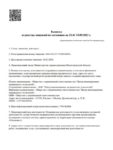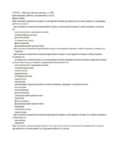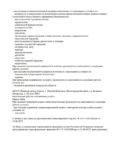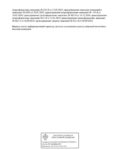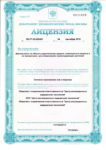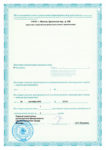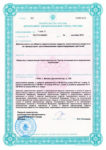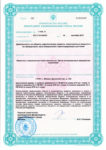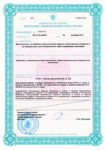Интеллектуальная собственность https://www.euroonco.ru
Тактика адъювантной системной терапии.
Каким образом сочетать компоненты адъювантной системной терапии у каждой конкретной больной? Аргументированные ответы содержатся в рекомендациях экспертов Двенадцатой Международной конференции по адъювантной терапии рака молочной железы в Сан-Галлене [53]. Для выбора лечения больной принимаются во внимание ее возраст, репродуктивный статус, размер опухоли, гистологическая форма и степень злокачественности опухоли, наличие метастазов в лимфатических узлах, экспрессия РЭ, РП, HER2, Ki67. Данные иммуногистохимического исследования используют для суррогатного деления опухолей на молекулярные подтипы. Под люминальным подтипом А понимают РЭ и/или РП позитивную опухоль с отсутствием HER2 и низким уровнем Ki67 (<14%); опухоли люминального подтипа В также содержат РЭ и/или РП, они могут быть двух вариантов, — HER2-негативными, но с высоким уровнем Ki67 (>14%) или HER2-позитивными с любым уровнем Ki67. Третью группу составляют HER2-позитивные опухоли, не содержащие РЭ и РП. Тройные негативные опухоли не содержат HER2, РЭ и РП [53].
Таблица 5: рекомендации по системной адъювантной терапии в зависимости от молекулярного подтипа опухоли (53).
| Подтип опухоли | Вид терапии | Комментарии | |
| Люминальный А | Гормонотерапия | В некоторых случаях требуется химиотерапия (например, при значительном поражении лимфатических узлов) | |
| Люминальный В (HER2 негативный) | Гормонотерапия ± химиотерапия | Включение химиотерапии и её тип зависит от экспрессии РЭ и РП, оценке риска рецидива и предпочтений пациента | |
| Люминальный В (HER2 позитивный) | Химиотерапия + анти- HER2 терапия + гормонотерапия | Нет оснований отказываться от химиотерапии в этой группе | |
| HER2 позитивный (не люминальный) | Химиотерапия + анти- HER2 терапия | Больные с очень низким риском (например, рТ1а и N0) могут наблюдаться без системной адъювантной терапии | |
| Тройной негативный (протоковый) | Химиотерапия | ||
| Особые гистологические типы | Гормонально зависимые | Гормонотерапия | |
| Гормонально независимые | Химиотерапия | Медуллярный и аденокистозный раки могут не требовать адъювантной химиотерапии (при N0) | |
Согласно консенсусному решению экспертов 12-й Международной конференции по адъювантной терапии рака молочной железы в Сан-Галлене, принятому в 2011 г., адъювантная системная терапия в случае инфильтративного РМЖ должна проводиться почти всем больным. Исключение могут составлять пациентки с благоприятным прогнозом: среди больных с тройным негативным фенотипом опухоли это относится к медуллярной и аденокистозной формам рака при отсутствии поражения регионарных лимфатических узлов; среди больных с гиперэкспрессией HER2 — при размере новообразования до 0,5 см и отсутствии поражения регионарных лимфатических узлов. Остальным больным назначается адъювантная терапия (смотри таблицу 5).
Адъювантная гормонотерапия показана всем больным при наличии в опухоли РЭ и/или РП. Гормональная зависимость опухоли не исключает ее чувствительности к адъювантной химиотерапии. В случаях наличия показаний и к адъювантной химиотерапии и к адъювантной гормонотерапии химиотерапия проводится в первую очередь. Варианты предпочтений препаратов в зависимости от молекулярного подтипа опухоли: люминальный В (HER2 негативный) — антрациклины и таксаны; люминальный В (HER2 позитивный) — антрациклины, таксаны, трастузумаб в течение 1 года; HER2 позитивный (не люминальный) — антрациклины, таксаны, трастузумаб в течение 1 года; тройной негативный — антрациклины, таксаны, алкилирующие (например, циклофосфамид), в том числе в дозо-уплотнённом режиме, экспертами не приветствовалось применение препаратов платины и антиангиогенных препаратов. По поводу люминального А подтипа эксперты высказались следующим образом: «наименее чувствителен к химиотерапии, химиотерапия наименее полезна этим больным; нет предпочтительного режима химиотерапии, который мог бы быть предписан именно к люминальному А раку». Следует помнить о нежелательности одновременного применения антрациклинов и трастузумаба из-за возможного потенцирования их кардиотоксичности. В то же время, сочетание таксанов с трастузумабом потенцирует их противоопухолевый эффект. Поэтому для больных с HER2-позитивными опухолями может быть рекомендовано последовательное применение схем, включающих антрациклины, затем таксанов с трастузумабом, далее трастузумаба (в сочетании с гормонотерапией при гормонально-зависимых опухолях). Признано, что для уточнения показаний к химиотерапии у больных с рецепторопозитивным раком, особенно при отсутствии поражения лимфатических узлов, важную дополнительную информацию можно получить при исследовании 21-гена сигнатуры Oncotype DX.
Источники литературы
- Haagensen C. Diseases of the breast. 1965
- Haagensen C., Stout A.P. Carcinoma of the breast. II — Criteria of operability. Ann. Surg. 1943,118.859-870 & 1032-1051.
- Fourquet A., Campana F., Scholl S. et al. Primary chemotherapy or primary radiotherapy: a possibility to preserve the breast in large tumors // International Congress of Radiation Oncology 1993. June 21-25. Kyoto, 1993. P. 112
- Semiglazov V.F., Topuzov E.E., Bavli J.L., et al. Primary (neoadjuvant) chemotherapy and radiotherapy compared with primary radiotherapy alone in stage IIb-IIIa breast cancer // Ann. Oncol. 1994. Vol. 5, N 7. P. 591-595.
- Fisher B, Bryant J, Wolmark N, Mamounas E, Brown A, Fisher ER, et al. Effect of preoperative chemotherapy on the outcome of women with operable breast cancer. J Clin Oncol 1998;16:2672—85.
- Wolmark N, Wang J, Mamounas E, Bryant J, Fisher B. Preoperative chemotherapy in patients with operable breast cancer: nine-year results from National Surgical Adjuvant Breast and Bowel Project B-18. J Natl Cancer Inst Monogr 2001;30:96—102.
- van der Hage J.A., van de Velde C.J.H., Julien J.-P., et al. Preoperative Chemotherapy in Primary Operable Breast Cancer: Results From the European Organization for Research and Treatment of Cancer Trial 10902 // J.Clin. Oncol. 2001.Vol. 19, N 22. P. 4224-4237.
- Paterson R., Russel M.H. Clinical trials in malignant disease. Part II — Breast cancer: value of irradiation of the ovaries. J. Faculty Radiologists, 1959, 10, 130-133.
- Nevinny H.B., Nevinny D., Roscoff C.B., et al. Prophylactic oophorectomy in breast cancer therapy. Am. J.Surgery, 1969,117, 531-536.
- Ravdin R.G., Iewison E.F., Slack N.H., et al. Results of a clinical trial concerning the worth of prophylactic oophorectomy for breast carcinoma. Surg. Gynecol. Obstet., 1970, 31, 1055-1064.
- Early Breast Cancer Trialists` Collaborative Group. Systemic treatment of early breast cancer by hormonal, cytotoxic, or immune therapy. 133 randomised trials involving 31000 recurrences and 24000 deaths among 75000 women. Lancet, 1992,339, 1-15, 71-85.
- Early Breast Cancer Trialists’ Collaborative Group. Ovarian ablation in early breast cancer: an overview of the randomised trials. Lancet, 1996, 348, 1189-1196.
- Early Breast Cancer Trialists’ Collaborative Group. Effects of chemotherapy and hormonal therapy for early breast cancer on recurrence and 15-year survival: an overview of the randomised trials // Lancet. 2005. Vol. 365, p. 1687-1717.
- Taylor C.W., Green S., Dalton W.S., et al. Multicenter randomized clinical trial of goserelin versus surgical ovariectomy in premenopausal patients with receptor-positive metastatic breast cancer: an intergroup study // J. Clin. Oncol. 1998. Vol. 16, N3. P. 994-999.
- Boccardo F, Rubagotti A, Amoroso D, et al. Cyclophosphamide, methotrexate, and fluorouracil versus tamoxifen plus ovarian suppression as adjuvant treatment of estrogen receptor-positive pre-/perimenopausal breast cancer patients: results of the Italian Breast Cancer Adjuvant Study Group 02 randomized trial. J Clin Oncol. 2000 Jul;18(14):2718-27.
- Kaufmann M, Jonat W, Blamey R, et al. Survival analyses from the ZEBRA study. Goserelin (Zoladex) versus CMF in premenopausal women with node-positive breast cancer. Eur J Cancer. 2003;39(12):1711-1717.
- Castiglione-Gertsch M., O’Neill A., Price K.N., et al. Adjuvant chemotherapy followed by goserelin versus either modality alone for premenopausal lymph node-negative breast cancer: a randomized trial. J Natl Cancer Inst. 2003.95(24):1833-46.
- Baum M, Hackshaw A, Houghton J, et al. Adjuvant goserelin in premenopausal patients with early breast cancer: results from the ‘Zoladex’ in premenopausal patients (ZIPP) trial. Eur J Cancer. 2006;42(7):895—904.
- Hackshaw A., M.Baum, T. Fornander, et al. Long-term Effectiveness of Adjuvant Goserelin in Premenopausal Women With Early Breast Cancer. J Natl Cancer Inst. 2009 ; 101(5): 341–349.
- The Adjuvant Breast Cancer Trials Collaborative Group. Ovarian Ablation or Suppression in Premenopausal early breast cancer: results from the International adjuvant breast cancer ovarian ablation or suppression randomized trial. JNCI 2007, 99 (7), 516-525.
- Fogelman I, Blake GM, Palmer M, et al. Bone mineral density in premenopausal women treated for node-negative early breast cancer with 2 years of goserelin or 6 months of cyclophosphamide, methotrexate and 5-fluorouracil (CMF). Osteoporos Int. 2003;14(12):1001—1006.
- Bernhard J, Zahrieh D, Castiglione-Gertsch M, et al. Adjuvant chemotherapy followed by goserelin compared with either modality alone: the impact on amenorrhea, hot flashes, and quality of life in premenopausal patients—the International Breast Cancer Study Group Trial VIII. J Clin Oncol. 2007; 25(3):263-270.
- Nolvadex Adjuvant Trial Organisation. Controlled trial of tamoxifen as a single adjuvant agent in the management of early breast cancer. Analysis at eight years by «Nolvadex» Adjuvant Trial Organisation. Br.J.Cancer., 1988, 57, 608-611.
- Early Breast Cancer Trialists’ Collaborative Group. Tamoxifen for early breast cancer: an overview of the randomised trials // Lancet. 1998. Vol. 351, P. 1189-1196.
- Early Breast Cancer Trialists` Collaborative Group (EBCTCG). Relevance of breast cancer hormone receptors and other factors to the efficacy of adjuvant tamoxifen: patient-level meta-analysis of randomized trials. Lancet. 2011;378(9793):771-84.
- Stewart H.J., Forrest A.P., Everington D., et al. Randomised comparison of 5 years of adjuvant tamoxifen with continuous therapy for operable breast cancer. The Scottish Cancer Trials Breast Group. Br J Cancer 1996, 74, 2, 297-299.
- Stewart H.J., Prescott R.J., Forrest A.P. Scottish adjuvant tamoxifen trial: a randomized study updated to 15 years. J. Natl. Cancer Inst. 2001. Vol. 93, N 6. P. 456-462.
- Fisher B., Dignam J., Bryant J., Wolmark N. Five versus more than five years of tamoxifen for lymph node-negative breast cancer: updated findings from the National Surgical Adjuvant Breast and Bowel Project B-14 randomized trial // J. Natl. Cancer Inst. 2001. Vol. 93, N 9. P. 684-690.
- ATLAS newsletter. 10, January 2005.
- Davies C., Pan H., Godwin J., Gray R., Peto R., on Behalf of ATLAS Collaborators Worldwide. ATLAS — 10 v 5 years of adjuvant tamoxifen (TAM) in ER+ disease: Effects on outcome in the first and in the second decade after diagnosis. 35 SABCS. December 4–8, 2012 Cancer Res., 2012, 72, 24, Suppl. Abstr . S1-2.
- R. G. Gray, D. W. Rea, K. Handley, et al. aTTom (adjuvant Tamoxifen—To offer more?): Randomized trial of 10 versus 5 years of adjuvant tamoxifen among 6,934 women with estrogen receptor-positive (ER+) or ER untested breast cancer—Preliminary results. JCO Volume: 26 Issue: 15_suppl. ASCO 2008 Meeting Abstracts: 513.
- Baum M, Budzar AU, Cuzick J, et al. Anastrozole alone or in combination with tamoxifen versus tamoxifen alone for adjuvant treatment of postmenopausal women with early breast cancer: first results of the ATAC randomised trial. Lancet. 2002;359(9324):2131-9.
- Baum M., Buzdar A., Cuzick J., et al. Anastrozole alone or in combination with tamoxifen versus tamoxifen alone for adjuvant treatment of postmenopausal women with early-stage breast cancer: results of the ATAC (Arimidex, Tamoxifen Alone or in Combination) trial efficacy and safety update analyses // Cancer. 2003. Vol. 98, N9. P. 1802-1810.
- Arimidex, Tamoxifen, Alone or in Combination (ATAC) Trialists’ Group, Forbes JF, Cuzick J, Buzdar A, Howell A, Tobias JS, Baum M. Effect of anastrozole and tamoxifen as adjuvant treatment for early-stage breast cancer: 100-month analysis of the ATAC trial. Lancet Oncol. 2008 Jan;9(1):45-53.
- Cuzick J, Sestak I, Baum M, et al. Effect of anastrozole and tamoxifen as adjuvant treatment for early-stage breast cancer: 10-year analysis of the ATAC trial. Lancet Oncol. 2010 11(12):1135-41.
- Coates AS, Keshaviah A, Thürlimann B, et al. Five years of letrozole compared with tamoxifen as initial adjuvant therapy for postmenopausal women with endocrine-responsive early breast cancer: update of study BIG 1-98. J Clin Oncol. 2007 Feb 10;25(5):486-92.
- Colleoni M, Giobbie-Hurder A, Regan MM, et al. Analyses adjusting for selective crossover show improved overall survival with adjuvant letrozole compared with tamoxifen in the BIG 1-98 study. J Clin Oncol. 2011;29(9):1117-1124.
- Crivellari D, Sun Z, Coates AS, et al. Letrozole compared with tamoxifen for elderly patients with endocrine-responsive early breast cancer: the BIG 1-98 trial. J Clin Oncol. 2008;26(12):1972-9.
- Viale G, Regan MM, Maiorano E, et al. Prognostic and predictive value of centrally reviewed expression of estrogen and progesterone receptors in a randomized trial comparing letrozole and tamoxifen adjuvant therapy for postmenopausal early breast cancer: BIG 1-98. J Clin Oncol. 2007; 25(25):3846-3852.
- Rasmussen BB, Regan MM, Lykkesfeldt AE, et al. Adjuvant letrozole versus tamoxifen according to centrally-assessed ERBB2 status for postmenopausal women with endocrine-responsive early breast cancer: supplementary results from the BIG 1-98 randomised trial. Lancet Oncol. 2008;9(1):23-28.
- Viale G, Giobbie-Hurder A, Regan MM, et al. Prognostic and predictive value of centrally reviewed Ki-67 labeling index in postmenopausal women with endocrine-responsive breast cancer: results from Breast International Group Trial 1-98 comparing adjuvant tamoxifen with letrozole. J Clin Oncol. 2008;26(34):5569-75.
- Viale G, Regan MM, Dell’orto P, et al. Which patients benefit most from adjuvant aromatase inhibitors? Results using a composite measure of prognostic risk in the BIG 1-98 randomized trial.Ann Oncol. 2011;22(10):2201-2207.
- Rabaglio M, Sun Z, Price KN, et al. Bone fractures among postmenopausal patients with endocrine-responsive early breast cancer treated with 5 years of letrozole or tamoxifen in the BIG 1-98 trial. Ann Oncol. 2009. 20(9):1489-1498.
- Dowsett M, Cuzick J, Ingle J, et al. Meta-analysis of breast cancer outcomes in adjuvant trials of aromatase inhibitors versus tamoxifen. J Clin Oncol. 2010;28(3):509-518.
- Jakesz R, Jonat W, Gnant M, et al. Switching of postmenopausal women with endocrine-responsive early breast cancer to anastrozole after 2 years’ adjuvant tamoxifen: combined results of ABCSG trial 8 and ARNO 95 trial. Lancet. 2005;366(9484):455-62.
- BIG I-98 Collaborative Group. Letrozole therapy alone or in sequence with Tamoxifen in women with breast cancer. N. Engl. J. Med. 2009; 361:766-776.
- Coombes RC, Kilburn LS, Snowdon CF, et al. Survival and safety of exemestane versus tamoxifen after 2-3 years’ tamoxifen treatment (Intergroup Exemestane Study): a randomised controlled trial. Lancet. 2007;369(9561):559-70.
- van de Velde CJ, Rea D, Seynaeve C. et al. Adjuvant tamoxifen and exemestane in early breast cancer (TEAM): a randomised phase 3 trial. Lancet. 2011;377(9762):321-331.
- Goss PE, Ingle JN, Martino S, et al. A randomized trial of letrozole in postmenopausal women after five years of tamoxifen therapy for early-stage breast cancer. N Engl J Med. 2003;349(19):1793-1802.
- Jin H, Tu D, Zhao N, Shepherd LE, Goss PE. Longer-term outcomes of letrozole versus placebo after 5 years of tamoxifen in the NCIC CTG MA.17 trial: analyses adjusting for treatment crossover. J Clin Oncol. 2012;30(7):718-721.
- Jakesz R, Greil R, Gnant M, et al. Extended adjuvant therapy with anastrozole among postmenopausal breast cancer patients: results from the randomized Austrian Breast and Colorectal Cancer Study Group Trial 6a. J Natl Cancer Inst. 2007 Dec 19;99(24):1845-53.
- Mamounas EP, Jeong JH, Wickerham DL, et al. Benefit from exemestane as extended adjuvant therapy after 5 years of adjuvant tamoxifen: intention-to-treat analysis of the National Surgical Adjuvant Breast And Bowel Project B-33 trial. J Clin Oncol. 2008;26(12):1965-71.
- A.Goldhirsch, W.C.Wood, A.S.Coates et al. Strategy for subtypes — dealing with the diversity of breast cancer: highlights of the St Gallen International Expert Consensus on the Primary Therapy of Early Breast Cancer 2011. Annals of Oncology. 2011;22(8):1736-1747.
- Sverrisdottir A, Nystedt M, Johansson H, Fornander T. Adjuvant goserelin and ovarian preservation in chemotherapy treated patients with early breast cancer: results from a randomized trial. Breast Cancer Res Treat. 2009;117(3):561-567.
- R. Ismail-Khan, S. Minton, C. Cox, et al. Preservation of ovarian function in young women treated with neoadjuvant chemotherapy for breast cancer: A randomized trial using the GnRH agonist (triptorelin) during chemotherapy. JCO Volume: 26 Issue: 15_suppl. ASCO 2008 Meeting Abstracts: 524.
- Jackisch C, Verma S. A global perspective on the use of aromatase inhibitors in early-stage breast cancer. SABCS 2008. Abstr 1144.
- Mercer RJ, Bryan RM, Bennett RC. Hormone receptors in male breast cancer. Aust N Z J Surg. 1984;54(3):215-8.
- S.H. Giordano, D.S. Cohen, A.U. Buzdar, et al. Breast carcinoma in men. A population-based study. Cancer, 2004, V. 101, 1, P. 51-57.)
- Z.A. Nahleh, R. Srikantiah, M. Safa, et al. Male breast cancer in the veterans affairs population. A comparative analysis. Cancer 2007 V.109, 8, P. 1471-1477.)
- Patterson JS, Battersby LA, Bach BK. Use of tamoxifen in advanced male breast cancer. Cancer Treat Rep. 1980;64(6-7):801-4.
- Kantarjian H, Yap HY, Hortobagyi G, et al. Hormonal therapy for metastatic male breast cancer. Arch Intern Med. 1983;143(2):237-40.
- Ribeiro GG. Tamoxifen in the treatment of male breast carcinoma. Clin Radiol. 1983;34(6):625-8.
- N. Mauras, K.O. O’Brien, K.O. Klein and V. Hayes. Estrogen Suppression in Males: Metabolic Effects. The Journal of Clinical Endocrinology & Metabolism. 2000 Vol. 85, No. 7 р. 2370-2377
- S. Loves, J. Ruinemans-Koerts, H. de Boer. Letrozole once a week normalizes serum testosterone in obesity-related male hypogonadism. European Journal of Endocrinology, 2008 Vol 158, Issue 5, 741-747
- Harris AL, Dowsett M, Stuart-Harris R, Smith IE. Role of aminoglutethimide in male breast cancer. Br J Cancer. 1986;54(4):657-60.
- Nahleh ZA. Hormonal therapy for male breast cancer: A different approach for a different disease. Cancer Treat Rev. 2006;32(2):101-5.
- Giordano SH, Valero V, Buzdar AU, Hortobagyi GN. Efficacy of anastrozole in male breast cancer. Am J Clin Oncol. 2002;25(3):235-7.
- Italiano A, Largillier R, Marcy PY, et al. [Complete remission obtained with letrozole in a man with metastatic breast cancer] Rev Med Interne. 2004;25(4):323-4.
- Zabolotny BP, Zalai CV, Meterissian SH. Successful use of letrozole in male breast cancer: a case report and review of hormonal therapy for male breast cancer. J Surg Oncol. 2005;90(1):26-30.
- Arriola E, Hui E, Dowsett M, Smith IE. Aromatase inhibitors and male breast cancer. Clin Transl Oncol. 2007;9(3):192-4.
- P. E. Goss, C.Reid, M.Pintilie, et al. Male breast carcinoma. A review of 229 patients who presented to the Princess Margaret Hospital during 40 years: 1955-1996 Cancer 2000. 85, 3, 629-639.
- S. H. Giordano, G.H. Perkins, K. Broglio, et al. Adjuvant systemic therapy for male breast carcinoma. Cancer 2005. 104, 11, 2359-2364.
- Anelli TF, Anelli A, Tran KN, et al. Tamoxifen administration is associated with a high rate of treatment-limiting symptoms in male breast cancer patients. Cancer. 1994 Jul 1;74(1):74-77.
- Fisher B. et al. Ten-year follow-up results of patients with carcinoma of the breast in a co-operative clinical trial evaluating surgical adjuvant chemotherapy. Surg. Gynecol. Obstet., 1975, 140, 528-534.
- Nissen-Meier R., et al. Surgical adjuvant chemotherapy. Results with one short course with cyclophosphamide after mastectomy for breast cancer. Cancer, 1978, 41, 2088-2098.
- Bonadonna G., Valagussa P, Rossi A., et al. Ten-year experience with CMF-based adjuvant chemotherapy in resectable breast cancer. Breast Cancer Res.Treat. 1985, 5, 95-115.
- Fisher B., Fisher E.R., Redmond C.K. Ten year results from the NSABP clinical trial evaluating the use of L-phenylalanine mustard (L-Pam) in the management of primary breast cancer. J.Clin.Oncol.,1986, 4, 929-941.
- Bonadonna G., Valagussa P. Dose-response effect of adjuvant chemotherapy in breast cancer. N. Engl. J.Med., 1981, 304, 10-15.
- Hryniuk W. & Levine M.N. Analysis of dose intensity in chemotherapy trials in stage II breast cancer. J Clin Oncol, 1986, 4, 1162-1170.
- Портной С.М. Рак молочной железы (факторы прогноза и лечение). Автореф. ... д.м.н. М. 1997, 40 с.
- Clarke M, Coates AS, et al. Adjuvant chemotherapy in oestrogen-receptor-poor breast cancer: patient-level meta-analysis of randomised trials. Lancet. 2008;371(9606):29-40.
- Buzdar A.U., Singletary S.E., Valero V., et al. Evaluation of paclitaxel in adjuvant chemotherapy for patients with operable breast cancer: preliminary data of a prospective randomized trial // Clin. Cancer Res. 2002. Vol. 8, N 5. P. 1073-1079.
- Henderson I.C., Berry D.A., Demetri G.D. et al. Adjuvant chemotherapy: taxanes — the «pro» position // NIH consensus development conference on adjuvant therapy for breast cancer. Program and abstract book. November 1-3, 2000. P. 79-82.
- Henderson I.C., Berry D.A., Demetri G.D., et al. Improved outcomes from adding sequential Paclitaxel but not from escalating Doxorubicin dose in an adjuvant chemotherapy regimen for patients with node-positive primary breast cancer // J. Clin. Oncol. 2003. Vol. 21, N 6. P. 976-983.
- Mamounas E.P. Evaluating the use of paclitaxel following doxorubicin/cyclophosphamide in patients with breast cancer and positive axillary nodes // NIH consensus development conference on adjuvant therapy for breast cancer. Program and abstract book. November 1-3, 2000. P. 83.
- Nabholtz J.-M., Pienkowski T., Mackey J., et al. Phase III trial comparing TAC (docetaxel, doxorubicin, cyclophosphamide) with FAC (5-fluorouracil, doxorubicin, cyclophosphamide) in the adjuvant treatment of node positive breast cancer (BC) patients: interim analysis of the BCIRG 001 study // Proc. Am. Soc. Clin. Oncol. 2002. Abstr. No141.
- Citron M.L., Berry D.A., Cirrincione C., et al. Randomized trial of dose-dense versus conventionally scheduled and sequential versus concurrent combination chemotherapy as postoperative adjuvant treatment of node-positive primary breast cancer: first report of Intergroup Trial C9741/Cancer and Leukemia Group B Trial 9741 // J. Clin. Oncol. 2003. Vol. 21, N 8. P.1431-1439.
- Early Breast Cancer Trialists’ Collaborative Group Ebctcg. Comparisons between different polychemotherapy regimens for early breast cancer: meta-analyses of long-term outcome among 100 000 women in 123 randomised trials. Lancet. 2012;379(9814):432-444.
- Pritchard KI, Shepherd LE, O’Malley FP et al. HER2 and responsiveness of breast cancer to adjuvant chemotherapy. N Engl J Med. 2006. 354(20):2103-2111.
- Slamon DJ, Mackey J, Robert N, et al. Role of anthracycline-based therapy in the adjuvant treatment of breast cancer: efficacy analyses determined by molecular subtypes of the disease. 30th Annual SAN ANTONIO BREAST CANCER SYMPOSIUM — December 13–16, 2007. Breast Cancer Research and Treatment VOL. 106, Supplement 1, Abst13.
- Rodenhuis S, Bontenbal M, van Hoesel QG, et al., Efficacy of high-dose alkylating chemotherapy in HER2/neu-negative breast cancer. Ann Oncol. 2006;17(4):588-596.
- Piccart-Gebhart MJ, Procter M, Leyland-Jones B et al. Trastuzumab adjuvant chemotherapy in HER2-positive breast cancer. N Engl J Med 2005;353:1659—1672.
- Gianni L, Dafni U, Gelber RD, et al. Treatment with trastuzumab for 1 year after adjuvant chemotherapy in patients with HER2-positive early breast cancer: a 4-year follow-up of a randomised controlled trial. Lancet Oncol. 2011;12(3):236-244.
- Goldhirsch A, Piccart-Gebhart MJ, Procter M, et al. HERA TRIAL: 2 years versus 1 year of trastuzumab after adjuvant chemotherapy in women with HER2-positive early breast cancer at 8 years of median follow up. 35 SABCS. December 4–8, 2012 Cancer Res., 2012, 72, 24, Suppl., S5-2.
- Slamon D, Eiermann W, Robert N et al. Phase III randomized trial comparing doxorubicin and cyclophosphamide followed by docetaxel (AC T) with doxorubicin and cyclophosphamide followed by docetaxel and trastuzumab (ACTH) with docetaxel, carboplatin and trastuzumab (TCH) in HER2 positive early breast cancer patients: BCIRG 006 study. Breast Cancer Res Treat 2005;94 (suppl 1):S5.
- Slamon D, Eiermann W, Robert N, et al. Adjuvant trastuzumab in HER2-positive breast cancer. N Engl J Med. 2011 Oct 6;365(14):1273-83
- Romond EH, Perez EA, Bryant J et al. Trastuzumab plus adjuvant chemotherapy for operable HER2-positive breast cancer. N Engl J Med 2005;353:1673—1684.
- Perez EA, Romond EH, Suman VJ, et al. Four-year follow-up of trastuzumab plus adjuvant chemotherapy for operable human epidermal growth factor receptor 2-positive breast cancer: joint analysis of data from NCCTG N9831 and NSABP B-31. J Clin Oncol. 2011;29(25):3366-3373.
- Joensuu H, Kellokumpu-Lehtinen P-L, Bono P et al. Adjuvant docetaxel or vinorelbine with or without trastuzumab for breast cancer. N Engl J Med 2006; 354:809–820.
- Joensuu H, Bono P, Kataja V, et al. Fluorouracil, epirubicin, and cyclophosphamide with either docetaxel or vinorelbine, with or without trastuzumab, as adjuvant treatments of breast cancer: final results of the FinHer Trial. J Clin Oncol. 2009;27(34):5685-5692.
- Pivot X, Romieu G, Bonnefoi H, et al. PHARE Trial results of subset analysis comparing 6 to 12 months of trastuzumab in adjuvant early breast cancer. 35 SABCS. December 4–8, 2012 Cancer Res., 2012, 72, 24, Suppl., S5-3.




